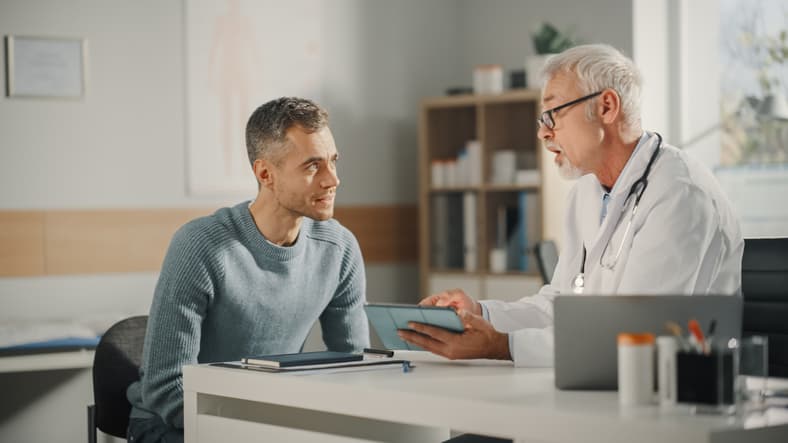Falls are incidents causing a person to end up on the floor or ground. Whether you slip or trip, you can suffer severe injuries from a fall. The Centers for Disease Control and Prevention (CDC) reports that adults 65 or older account for 3 million emergency room visits and over 32,000 deaths annually.
While falls can cause serious medical issues, many aren’t aware of the potential health issues and may not even realize they need to see a doctor. Fortunately, there’s no fixed time limit for seeking medical attention for a fall injury. However, some factors should prompt you to go to the doctor as soon as possible.
How long do you have to go to the doctor after a slip and fall?
Suppose you tripped and fell because of a loose floor mat in an office building, then got up and continued with your day. Your leg hurt, but you assumed you bruised it and your leg wouldn’t take long to heal. The following day, your leg is swollen, and it’s harder to walk. You may have fractured one of your leg bones or torn ligaments when you fell.
Medical professionals don’t put time limits on treatment. You can seek medical treatment days, weeks, or even months after a slip and fall accident. However, immediately seeking medical care can significantly impact prognosis.
Benefits of Prompt Care
You may not realize that you fractured a bone or suffered another severe injury when you slipped and fell. Immediately seeking medical treatment ensures you receive a diagnosis and can promptly begin treatment.
Untreated medical problems can be painful. In some cases, pain may increase over time. Chronic pain from untreated nerve damage can prevent you from engaging in some activities, impacting your quality of life.
You may exacerbate your injuries if you don’t seek treatment. In these cases, patients usually require additional medical care, increasing their treatment costs and prolonging their recovery.
Legal Factors
You may have grounds to pursue legal action if you fall because of someone’s negligence. The State of Florida gives slip-and-fall victims four years to file a lawsuit before the statute of limitations expires. The sooner you seek medical treatment, the sooner you’ll know if you have a potential legal claim.
What to Do After a Fall
You may not realize your fall caused an injury, or you may need help understanding the severity of your injury. Some symptoms to look for after a fall could indicate you need to see a doctor. Your symptoms can vary based on the nature of the injuries you sustained. Some common symptoms to look for include the following:
Swelling
Bruises, broken bones, soft tissue injuries, and torn ligaments can cause swelling. Internal injuries may require medical tests to diagnose.
Dizziness or Headaches
Falls are responsible for more traumatic brain injuries (TBIs) than any other cause. Common symptoms include dizziness, headaches, nausea, vomiting, and seizures.
Numbness in Your Extremities
Spinal cord injuries (SCIs) can cause your arms, hands, legs, and feet to tingle or feel numb. You may lose feeling in your extremities in severe cases.
Pain
Common fall injuries can cause chronic pain. Persistent or increasing pain indicates you should see a doctor.
Related: Personal Injury Claims in Tampa, Florida
When to Go to the Doctor
Every person has what medical professionals call a baseline. Your baseline is what’s normal for you. Within the normal body temperature range, some people tend to be warmer while others are cooler. You may have some lingering pain from prior injuries, which would be part of your everyday condition.
Changes from your baseline can indicate serious health issues. Symptoms of common fall injuries or changes from your baseline are reasons to see a doctor. For example, running a fever is a symptom of TBIs. Running a fever a few days after your accident could indicate you have a fracture that’s caused an infection. You must heed any symptoms or changes from your baseline and see a doctor.
When to See a Lawyer
Slip and fall lawyers can guide you through every step of the treatment and recovery process. Your legal team will encourage you to take medical tests to ensure you get a comprehensive diagnosis. Your lawyer will use your medical information to build a case against those responsible for your accident. Your law firm will file court paperwork, locate witnesses, and compile evidence to support your claims while you focus on your treatment and recovery.
You may have bills for medical tests, physical therapy, occupational therapy, and counseling. Your slip-and-fall attorney will fight for you to receive compensation for your medical bills, and you won’t pay any legal fees until your lawyer wins your case.
Sources
Facts About Falls. (2021).
How do I know if I’ve broken a bone? {2020).

